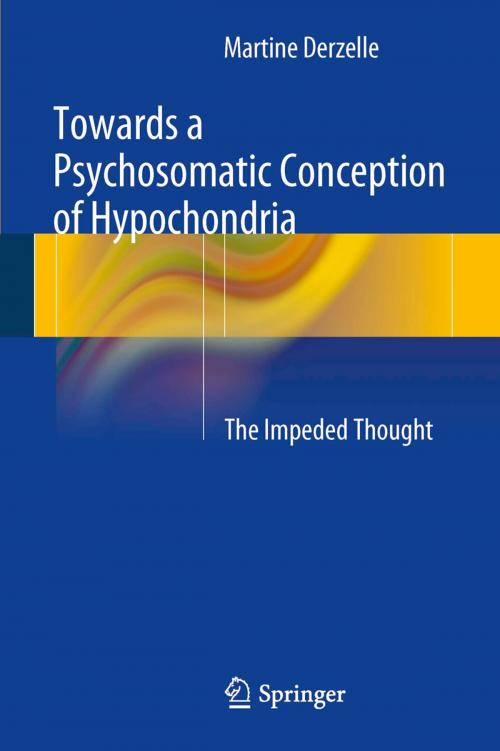Towards a Psychosomatic Conception of Hypochondria
The Impeded Thought
Nonfiction, Health & Well Being, Medical, Specialties, Psychiatry, Psychology, Psychotherapy| Author: | Martine Derzelle | ISBN: | 9783319030531 |
| Publisher: | Springer International Publishing | Publication: | November 26, 2013 |
| Imprint: | Springer | Language: | English |
| Author: | Martine Derzelle |
| ISBN: | 9783319030531 |
| Publisher: | Springer International Publishing |
| Publication: | November 26, 2013 |
| Imprint: | Springer |
| Language: | English |
A rigorous and groundbreaking study. Martine Derzelle is the first researcher to approach hypochondria as a relational pathology. Martine Derzelle is the first researcher to approach hypochondria as a relational pathology.
The author tackles a subject that has puzzled care professionals for decades: hypochondria. Martine Derzelle confronts all specialists (psychotherapists, psychiatrists, doctors, psychosomaticians) with the paradox of this pathology and the theoretical void on which the approach to those patients who express a suffering of various kinds has stood for more than a century.
In the first part, the author highlights the lack of theoretical elaboration on hypochondria in the existent literature; in the second part, on the basis of clinical examples, she analyzes the nature of the disease, and then offers a completely innovative theoretical elaboration. Finally, in the third part, she proposes a new and specific approach to treating this pathology at both the theoretical and clinical levels within the framework of psychoanalysis and implementing key concepts from relational psychosomatics.
A rigorous and groundbreaking study. Martine Derzelle is the first researcher to approach hypochondria as a relational pathology. Martine Derzelle is the first researcher to approach hypochondria as a relational pathology.
The author tackles a subject that has puzzled care professionals for decades: hypochondria. Martine Derzelle confronts all specialists (psychotherapists, psychiatrists, doctors, psychosomaticians) with the paradox of this pathology and the theoretical void on which the approach to those patients who express a suffering of various kinds has stood for more than a century.
In the first part, the author highlights the lack of theoretical elaboration on hypochondria in the existent literature; in the second part, on the basis of clinical examples, she analyzes the nature of the disease, and then offers a completely innovative theoretical elaboration. Finally, in the third part, she proposes a new and specific approach to treating this pathology at both the theoretical and clinical levels within the framework of psychoanalysis and implementing key concepts from relational psychosomatics.















